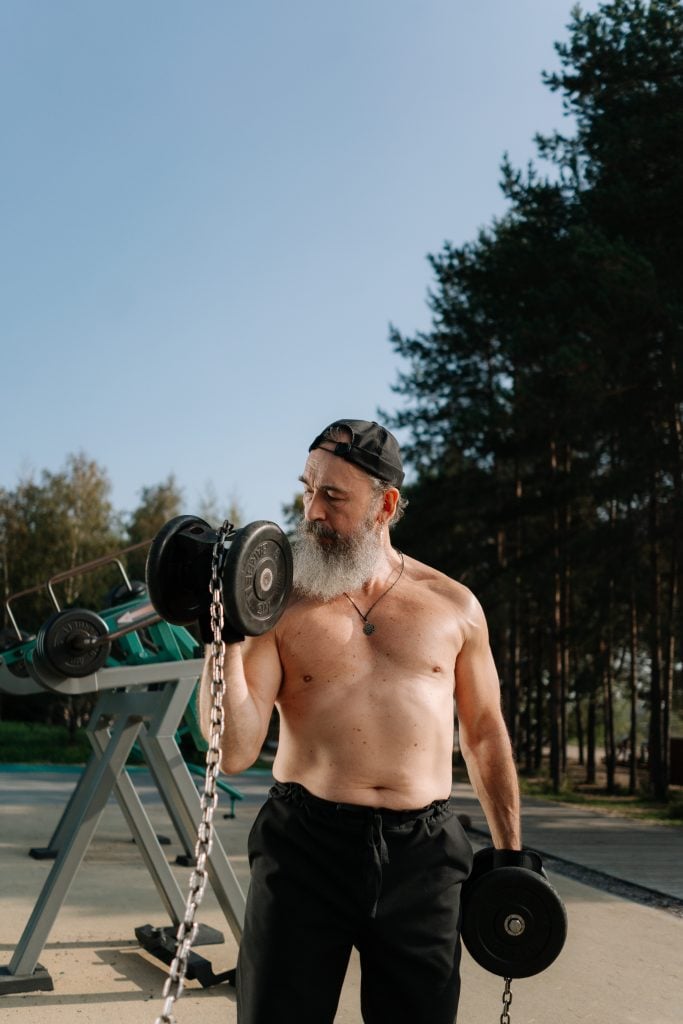No products in the cart.

By Nathan Seppa
June 25 2012
HOUSTON — Men with low testosterone who are given replacement doses of the hormone shed weight steadily for years, researchers in Germany reported June 23 at a meeting of the Endocrine Society. Study participants, nearly all of whom were overweight or obese at the start of the study, lost 36 pounds on average.
“This was an unintended effect,” said study coauthor Farid Saad, a research endocrinologist at Bayer Pharma in Berlin. “The big surprise was that when we analyzed the data [we found] that these men had lost weight continuously…year by year.” The men didn’t diet as part of the study, and any increase in their activity was voluntary, Saad said.
He and his colleagues studied 116 men, average age 61, who had low testosterone levels. Each received quarterly injections of the hormone for five years. At the start, 71 percent were obese and another 24 percent were overweight.
After five years, 97 percent of the men showed a reduction in waist circumference, on average losing “three to four trouser sizes,” Saad said. Average weight dropped from 236 pounds to about 200.
“This definitely offers some insight that we can apply to our clinical practices,” said Vineeth Mohan, a clinical endocrinologist at Cleveland Clinic Florida in Weston.
High testosterone levels have been linked to prostate cancer risk (SN: 10/8/05, p. 238), and a small portion of men taking high doses of it experience mania (SN: 2/19/00, p. 119). But in this study, Saad said, men received testosterone in doses just high enough to bring them back to normal levels. Three men in the test group were diagnosed with prostate cancer during the study, a rate lower than the incidence found in routine screening programs for men that age, he said.
Fat tissue induces the release of cortisone and other chemicals that studies have shown suppress production of testosterone, Saad said. The result is depressed mood, low energy and less activity. “This is a vicious circle that leads to more accumulation of fat mass and [continued] low levels of testosterone,” he said.
This loss is not greatly governed by age. An Australian study also reported at the meeting linked testosterone decline more closely to obesity, diabetes and depression than aging. Study coauthor Gary Wittert, a clinical endocrinologist of the University of Adelaide, reported that age had only a slight effect on testosterone levels in 1,384 men studied over five years, whereas depression had an effect two to three times as great.
That and other data suggest that “testosterone decline is not an inevitable result of aging among men,” Wittert said. Rather, loss is attributable to “a variety of factors such as social demographics, health status, chronic disease, obesity and depression.”
CITATIONS
A.B. Araujo et al. Longitudinal Changes in Testosterone over 5 Years in Community-Dwelling Men. Endocrine Society meeting, Houston, June 23, 2012. [Go to]
S. Bhasin et al. Testosterone Replacement Increases Fat-Free Mass and Muscle Size in Hypogonadal Men. Journal of Clinical Endocrinology & Metabolism, Vol. 82, February 1, 1997, p. 407.
http://jcem.endojournals.org/content/82/2/407.short
F. Saad et al. Restoring Testosterone to Normal Levels in Elderly Men Is Efficacious in Weight Reduction. A Follow-Up Study over 5 Years. Endocrine Society meeting, Houston, June 23, 2012. [Go to]
Related Posts
Obesity & Low T Levels
Obesity is a growing health concern that affects men of all ages. Studies have shown that obesity is linked to a number of health problems, including diabetes, heart disease, and low testosterone levels. Testosterone replacement therapy (TRT) is a treatment option that can help men with low testosterone levels, but it’s important to understand the…
Studies Support Testosterone Supplements for Older Men
By Kevin McKeever June 18,2008 June 18 — TUESDAY, June 17 (HealthDay News) — Low testosterone levels put men at high risk for cardiovascular disease, diabetes and early death, but testosterone replacement therapy may help better the odds, according to new studies. Some experts believe that low testosterone levels, which become more common with age,…
A Message from Dr. Rodriguez
As a physician specializing in testosterone replacement therapy (TRT), I have seen firsthand the positive impact that TRT can have on men’s health and well-being. Many men are not aware of the symptoms of low testosterone and do not realize that TRT may be an option for them. In this blog post, I would like…



